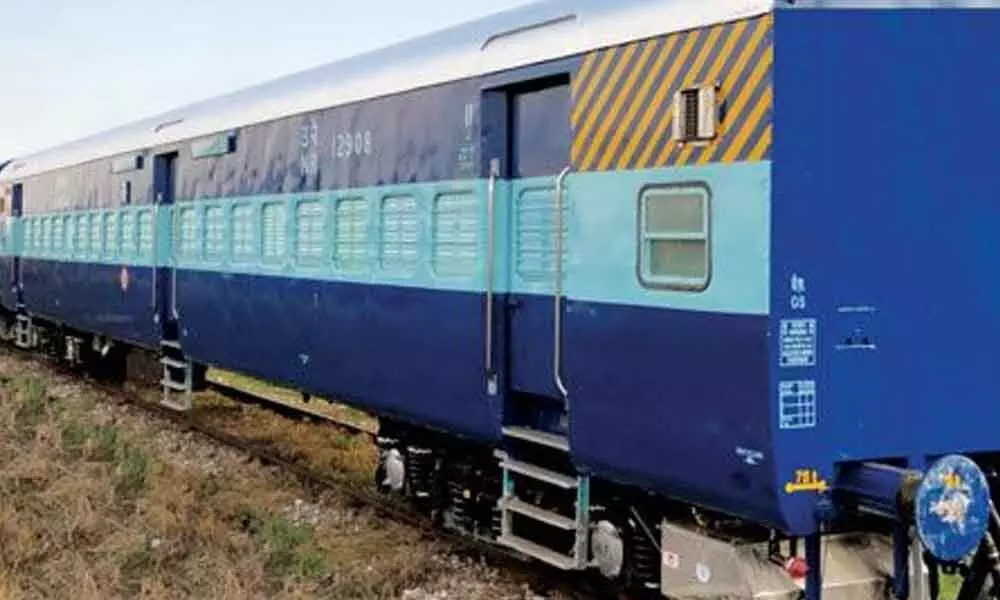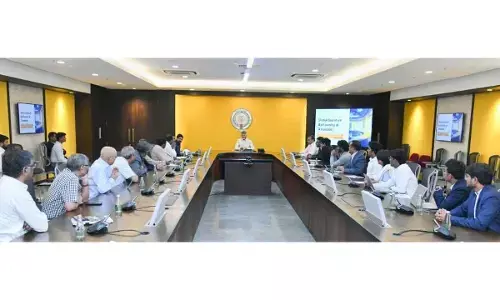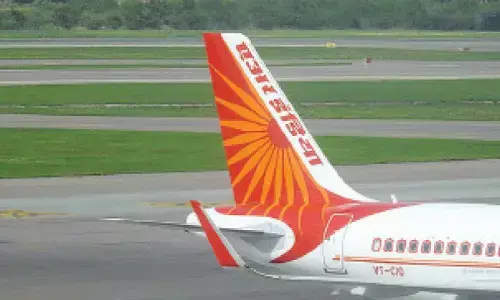AP scientist R V Krishnaiah shows railways a cheaper alternative

Bio-toilets
- Krishnaiah of Chebrolu developed an automated technology that collects waste from train toilets and segregates it into different materials and processing it into usable products
- Moreover, the new tech reduces the cost of each unit to Rs 15,000 as against the existing bio-toilet’s cost of Rs 1 lakh
New Delhi : An automated technology for collection of toilet waste which is easy to maintain and a seven times cheaper alternative to the bio-toilets, developed by an Andhra Pradesh scientist can be used to maintain the toilet system of the Indian Railways.
R V Krishnaiah of Chebrolu Engineering College, Chebrolu, Guntur district, developed this automated technology for collection of toilet waste from running trains and for segregation of different materials and processing the same into usable products.
Existing bio-toilets use anaerobic bacteria for converting human waste to gas, but that bacteria can't decompose plastic and cloth materials dumped into toilets by passengers.
Hence, maintenance and removal of such non-decomposed materials inside the tank is difficult.
The technology developed with support from the Advanced Manufacturing Technologies programme of the department of science and technology (DST), aligned with the 'Make in India' initiative has been granted five national patents and is in the testing phase.
It has been developed targeting the Indian Railways specifically with the aim of cost reduction and to obviate the necessity of time-consuming anaerobic bacteria generation. In contrast with bio-toilets which cost Rs 1 lakh per unit, the new technology brings down the cost to Rs 15,000 only. Dr R V Krishnaiah has tied up with MTE Industries for further upscale of this technology
The automated system consists of three simple steps, the septic tank (which is placed under the track, i.e., train line) top cover gets opened when train approaches the septic tank place by using Radio Frequency Identification (RFID) sensor and reader placed at engine and septic tank position respectively, sewerage material in toilet tanks is dropped into the septic tank when they are mutually synchronised, and finally the septic tank cover gets closed when train departs away from it.
The collected sewerage material from train toilets is segregated in such a way that human waste is stored in one tank, and other materials such as plastic materials, cloth materials, and so on are stored in another tank.
The human waste is further processed separately to convert into usable material. The plastic and cloth materials are processed separately.














